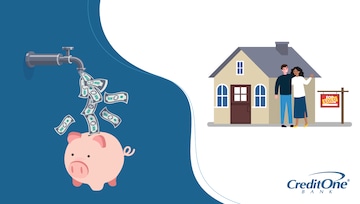
High-Yield Savings Accounts vs Money Market Accounts: What Are the Differences?
October 08, 2024
Looking to earn a higher rate of return on your money? Find out the similarities and differences between high-yield savings accounts and money market accounts.

In this article:
- Introduction
- What Is a High-Yield Savings Account?
- What Is a Money Market Account?
- Similarities Between High-Yield Savings and Money Market Accounts
- Differences Between High-Yield Savings and Money Market Accounts
- High-Yield Savings Accounts vs Money Market Accounts
- Is a High-Yield Savings or Money Market Account Right for You?
- Bottom Line
Introduction
If you’ve got some cash that you’d like to keep safe while earning interest on it, you may want to consider a high-yield savings account (HYSA) or a money market account (MMA). Both of these options offer the security of a standard savings account, but they typically pay higher interest rates. And they don’t require you to leave your money in them for a set period of time like a certificate of deposit (CD).
But what exactly are these two types of financial accounts, and how do they compare to each other? Most importantly, which one is right for you? Let’s explore those questions, and more.
What Is a High-Yield Savings Account?
As the name suggests, a high-yield savings account is a savings account offering a higher-than-normal return. These accounts typically pay an interest rate that’s around 10 to 12 times higher than standard savings accounts.
Most high-yield savings accounts require a minimum deposit to open, and you may need to maintain a minimum balance. But jumbo high-yield savings accounts have much higher requirements than other HYSAs. If you’re looking at opening a jumbo account, you’ll likely need to deposit tens of thousands of dollars or more.
What Is a Money Market Account?
A money market account is like a hybrid between a savings account and a checking account.
Generally speaking, savings accounts are not transactional — they’re meant for saving and growing money, not spending money. On the other hand, a checking account is designed for transactions, and comes with checks or a debit card so you make payments from your account. That’s why people often pair a savings account and a checking account together. The combination provides the best of both worlds.
A money market account straddles the line between the two. It’s an interest-bearing account that typically pays a higher interest rate than a standard savings account, similar to a HYSA. But an MMA also provides the ability to write checks.
It’s worth pointing out that a money market account is not the same as a money market fund (MMF), which is a type of short-term investment. These highly liquid mutual funds have a relatively low level of risk, but they’re not as safe as an MMA, which is federally insured. On the other hand, MMFs may offer a higher return than MMAs.
Similarities Between High-Yield Savings and Money Market Accounts
High-yield savings accounts and money market accounts are similar in many ways.
- Both are deposit accounts available at banks and credit unions, including traditional brick-and-mortar branches as well as online-only financial institutions.
- Both are federally insured to protect your money, just like traditional savings accounts. If the account is through a bank, it’s insured for up to $250,000 per account owner, per insured bank by the Federal Deposit Insurance Corporation (FDIC). If the account is through a credit union, it’s insured for the same amount by the National Credit Union Administration (NCUA).
- Both typically pay higher rates than traditional savings accounts. The amount varies by the account issuer, but it should be more than what you’d earn with a traditional savings account.
- Both may require higher minimum deposits than standard savings accounts, which you can generally open with any amount you like, or a low minimum — like $25 to $100. High-yield savings accounts and money market accounts often require a larger initial deposit, which could range from a few hundred to a few thousand dollars — and up to hundreds of thousands of dollars for a jumbo product.
- Both may require an ongoing minimum balance to be kept. Even after you’ve made your initial deposit into these accounts, you may be required to maintain a minimum balance. Dropping below the minimum amount could result in fines or penalties, reduced interest, or even closure of the account.
- Both may charge maintenance fees, transaction fees and penalties. This can include fees for monthly maintenance, for making certain transactions — like transfers or frequent withdrawals — or as a penalty for dropping below the minimum required balance. These fees may be waived if you keep a minimum balance or follow other conditions.
- Both may have restrictions on how many withdrawals or other transactions you can make each month. Pre-COVID, the Federal Reserve Board’s Regulation D restricted both types of accounts to six withdrawals per month, but this has become optional for institutions to implement.
Differences Between High-Yield Savings and Money Market Accounts
Despite many similarities, these two types of accounts differ in a few ways. The differences are mainly related to how you access your money, and what parameters you need to follow.
- Money market accounts typically come with a checkbook and debit card so you can write checks and make card purchases.
- High-yield savings accounts don’t allow you to write checks or make debit card purchases — but they may come with an ATM card for withdrawals.
- Money market accounts often have higher minimum balance requirements than high-yield savings.
- High-yield savings accounts may offer a higher APY than money market accounts.
High-Yield Savings Accounts vs Money Market Accounts
Here’s how the two account types compare at a glance.
| High-yield savings | Money market |
Type of account | Deposit | Deposit |
FDIC or NCUA insured | Yes | Yes |
Checks and debit | No | Yes |
Withdrawals and transfers | May be restricted | May be restricted |
Interest rate | Higher than average | Higher than average |
Minimum deposit | Sometimes | Usually |
Minimum balance | Sometimes | Usually |
Is a High-Yield Savings or Money Market Account Right for You?
Deciding which, if any, of these higher-interest accounts is right for you depends on a number of factors.
1. Which pays the highest interest rate?
If your main objective is to earn the biggest return possible while keeping your money safe, your choice may come down to which account pays the highest interest rate.
2. Can you meet the minimum requirements?
If the account requires a minimum deposit or minimum balance, you need to consider whether you have the money, and are willing to tie it up on an ongoing basis. Each account type may have options that are within your budget, but make sure before you commit.
3. How much access do you want?
If you want a more transactional account that lets you write checks or use a debit card, then a money market account may be a better choice for you.
If you plan on generally leaving your money alone to earn interest, then a high-yield savings account may make more sense.
If you’re willing to leave your money untouched for a designated time period, then a certificate of deposit could be an even better option.
Bottom Line
There aren’t any right or wrong answers when it comes to choosing between a high-yield savings account or a money market account. There’s only the right answer for you.
As always, it’s important to shop around and find a solution that fits your budget and earning goals. If you’re looking for an option that requires a higher minimum balance but pays a higher interest rate, consider the industry-leading jumbo deposit offerings from Credit One Bank.



